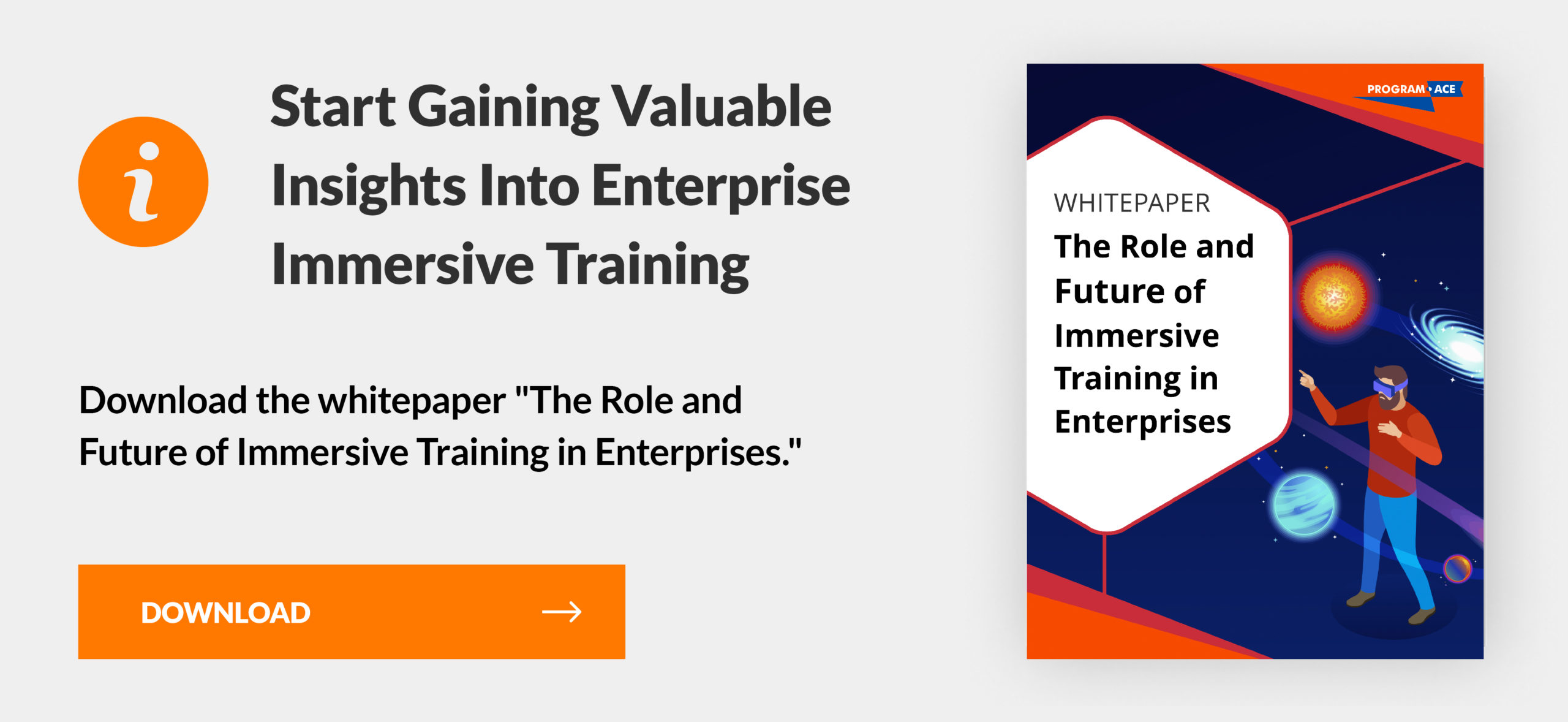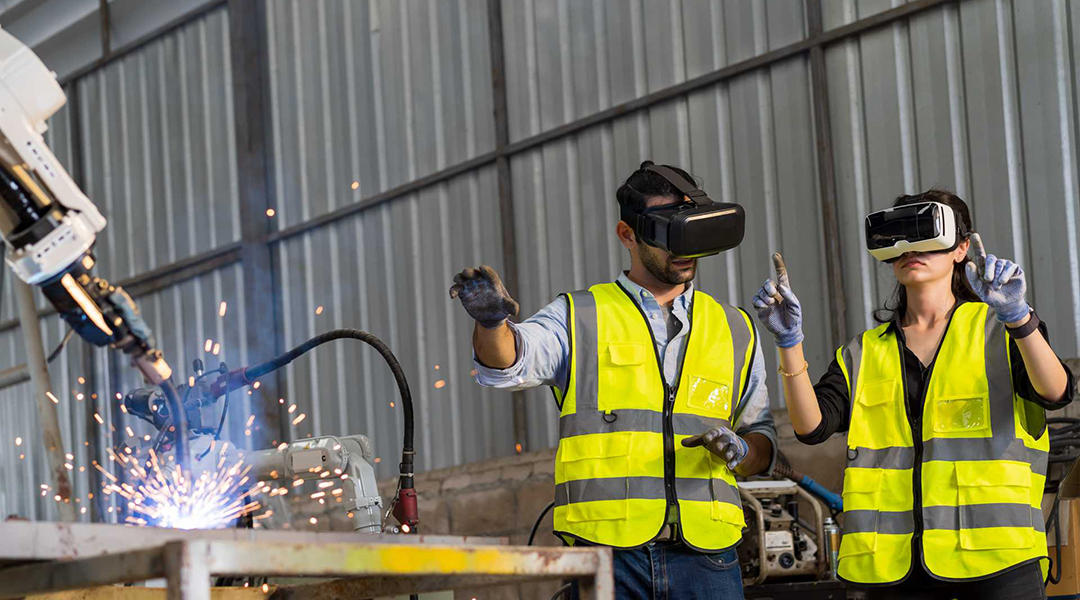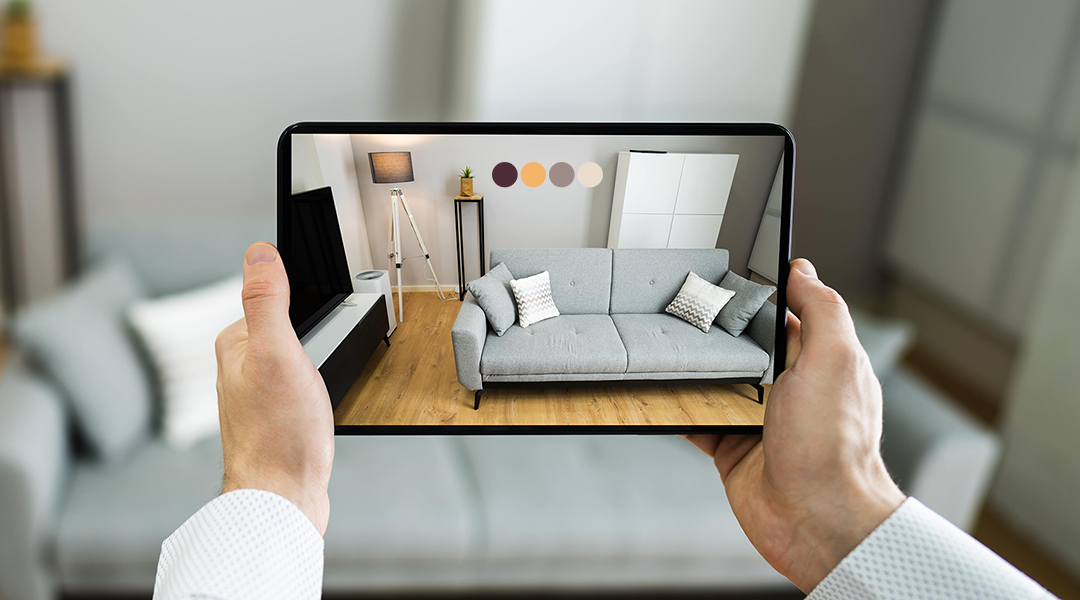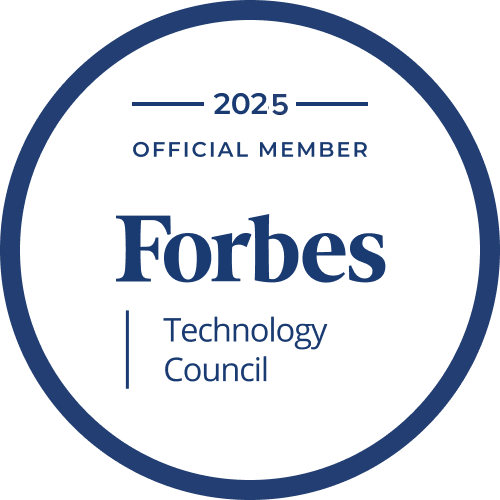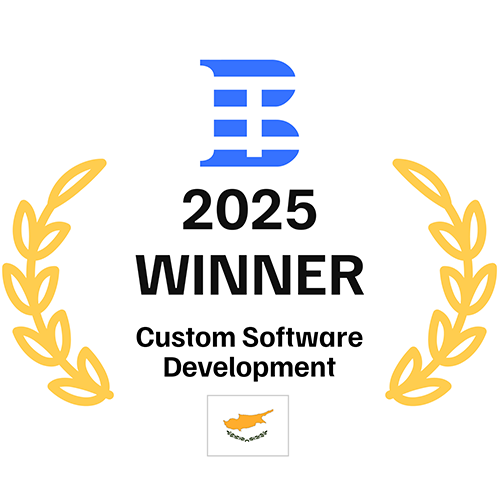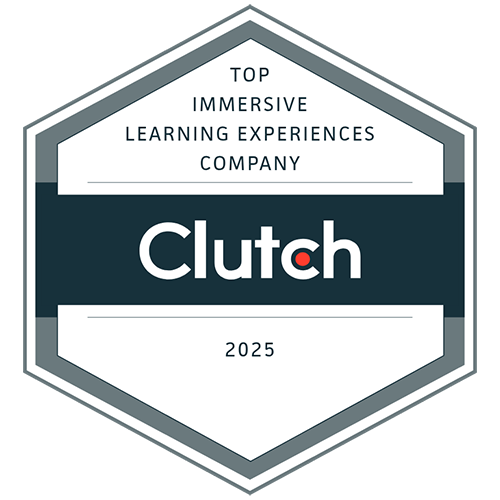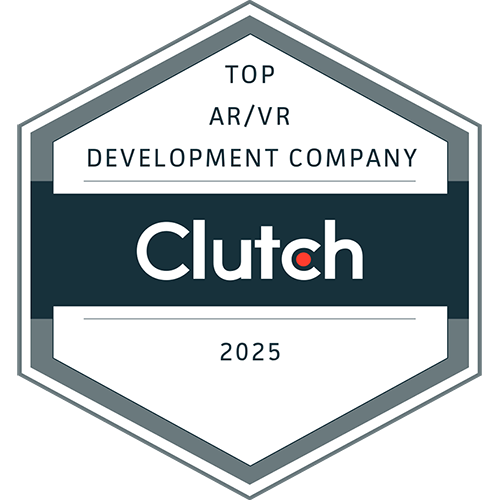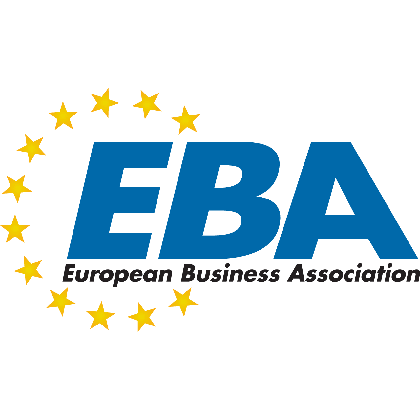In movies, TV shows, and other popular forms of media, VR is often portrayed as an entertainment tool for the rich. However, this is a very outdated stereotype, considering that the most popular VR headset (Oculus Quest 2) only costs $299, and that over one-third of global spending on immersive tech already comes from enterprises.
The truth is that VR is already widely used by businesses, and you could even say that it is revolutionizing many business processes. This is part of the reason why VR development services have become so sought-after. To fully understand the role of VR in the business world, let’s take a closer look.
What are the Main Virtual Reality Uses in Business?
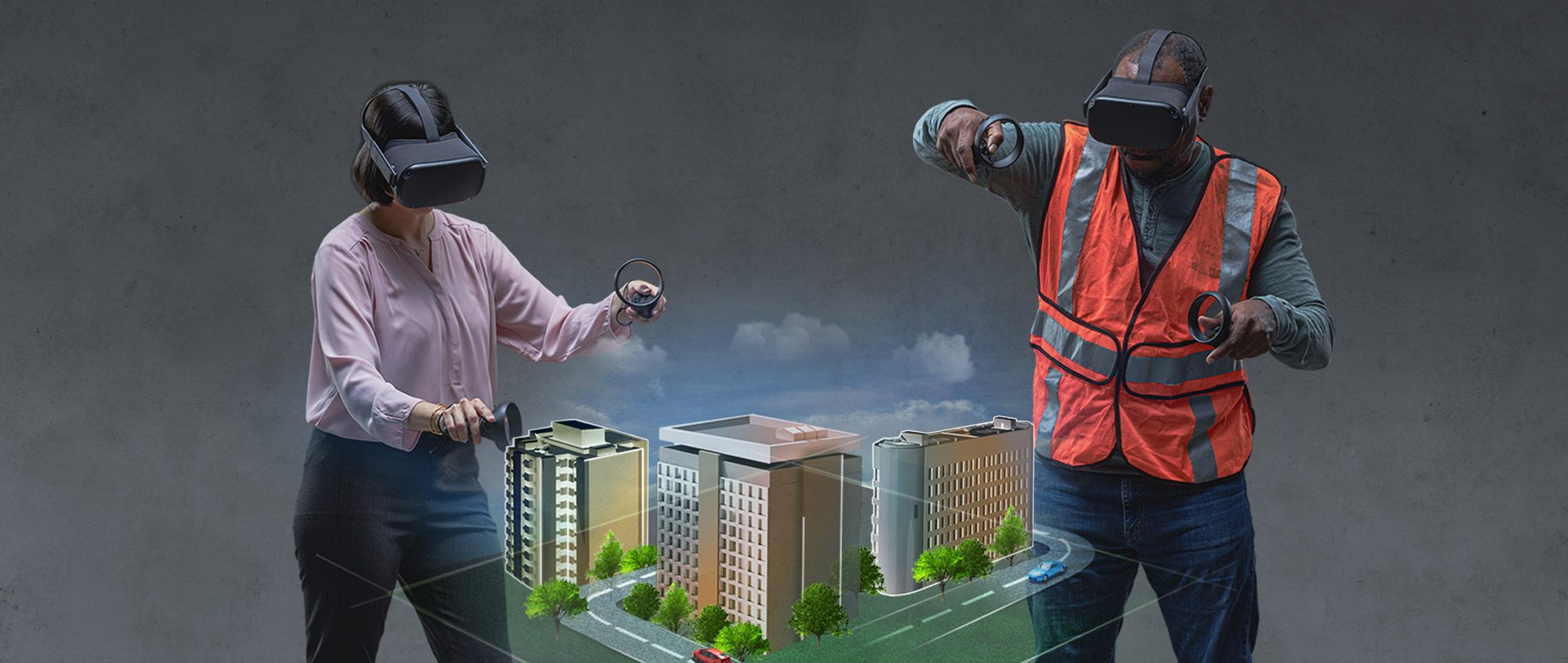
The choice to implement virtual reality for business is always accompanied by another consideration – what will your employees/customers use it for? Obviously, you want to get some business value out of the investment, and to do this, you’ll need to do more than just learn how VR works and buy some headsets. You will also need a suitable app that will perform your needed functions. Below are some popular uses of the technology:
1. Training solution
Virtual reality training allows you to teach employees essential skills, procedures, and knowledge anywhere and at any time. Training simulations can feature all of the equipment and machinery involved in work processes, and sometimes computer-guided characters that you interact with.
Many work processes and situations can be simulated this way with VR controllers or haptic gloves, and you don’t need to put anyone at risk. VR training helps you cut down on training equipment costs and make the education as safe and universal as can be.
2. Development/design tool
3D models and designs are commonly used during the development of products and processes, but VR adds another layer of immersion and realism to them. Now, you can see what an item will look like and how it will function in a lifelike environment, “hold” and interact with it.
You can also design various parts and elements inside the app. The infinite viewing angles and potentially huge size of the digital content are strengths that you simply would not get while working on paper or standard 3D software.
3. Presentation/sales tool
Using virtual reality technology in business is a spectacular way to set up unique interactions between consumers and a product. For example, some brands have implemented a VR product configurator on their website that lets customers create their own build and design of a product up close. Other solutions of this caliber also allow very personal and detailed interactions with a product that give just about as much as physically holding it in your hands.
4. Collaboration tool
Virtual avatars and 3D streams provide much more helpful information than any video call or conference. For example, some companies use virtual reality meetings to simulate the work environment when many employees are away or unable to attend in person for other reasons.
Sometimes, the person wearing the VR headset takes on a subordinate role, with another person on the other end of the stream seeing the video from their headset and guiding their actions with sound or visual commands.
5. Customer care solution
Sometimes, a virtual reality app is offered as part of a company’s care and service of a client. For instance, some customers can make use of virtual tours to explore a location that they might visit or purchase/rent. Another example is when VR helps them achieve health and life goals, including education and rehabilitation. Our company worked on such a solution, developing a hand rehabilitation application for patients that had a limited range of motion in their hands.
How VR Creates Business Value
Virtual reality offers businesses a powerful tool for enhancing customer experiences, improving training programs, and boosting operational efficiency. In retail, VR allows customers to explore products in immersive, interactive environments, leading to higher engagement and increased sales. For training, VR provides realistic simulations, enabling employees to practice skills in a controlled, risk-free setting, which enhances learning outcomes and reduces training costs.
Manufacturing companies benefit from VR by visualizing prototypes, identifying design flaws early, and refining products before production, saving time and reducing waste. Real estate firms use VR for virtual property tours, giving potential buyers a realistic experience of properties without physical visits, thereby speeding up sales cycles.
Marketing teams leverage VR for compelling campaigns that capture attention and provide memorable brand experiences. These immersive advertisements often result in higher customer retention and engagement rates. Additionally, VR is used in collaborative work environments, where remote teams can meet in virtual spaces, improving communication and productivity.
Healthcare sees significant value in VR for patient care and medical training. Surgeons can practice complex procedures in a virtual setting, while patients can use VR for therapeutic treatments, such as pain management and physical rehabilitation.
Which Brands are Already Using VR?
Unless you already have experience in turning virtual reality business ideas into fully-fledged apps (like we do), it might be hard to get a grasp of how well the market is doing. To paint a larger picture, we can bring up some prominent examples from various industries:
1. Ford (Automotive)
The world-renowned automaker Ford is creating new vehicle designs in VR. This approach was implemented to allow specialists to work from home in the Covid era.
2. Verizon (Telecommunications)
Verizon is training new employees with VR, simulating both technical maintenance operations and customer interactions. For example, one of the simulations sees them installing fiber cables and repairing network terminals.
3. Shell (Energy)
Shell has been using VR experiences for many years. For example, workers use the technology to go on digital field trips and find out how various forms of equipment are operated. They also learn how to respond to emergencies like oil leaks and explosions.
4. John Deere (Agriculture)
John Deere is using VR as a presentation tool to show off its new tractor model and how it is operated. They are also using it in-house as a tool for designing new tractor models.
5. IKEA (Retail)
Ikea is using VR as a tool for visualization, which can be utilized by customers and employees alike. The apps they are testing visualize how certain items of furniture will look inside a room.
6. UPS (Logistics)
UPS is training drivers in proper safety procedures with the help of a custom VR app. It simulates various road hazards and monitors how drivers respond to these situations.
7. Facebook (Social Media)
Facebook is using VR as a collaboration tool for employees. Their app “Horizon” features a virtual world for work, entertainment, and exploration. The company is betting big on the technology, with CEO Mark Zuckerberg announcing its planned creation of a digital metaverse.
As you might notice, one prevailing theme here is training. This is an incredibly popular use case and one that is universally useful in countless fields and lines of work.
So What are the Benefits of Virtual Reality in Business?
Let’s recap some of the stuff we’ve covered. Based on the experience of companies that have implemented VR solutions internally or offered them to their customers, potential virtual reality benefits for business include:
- Improves worker engagement and knowledge
- Imparts valuable on-the-job skills
- Serves as a groundbreaking way to show off products and services
- Provides a creative environment where new ideas can be tested
- A valuable reference tool for work planning
Go to VR app development services
How to Get Started with Your Own VR Application
Every successful VR app begins with an idea – how will the software accomplish business goals? Even if you are not sure that this idea can be properly implemented, why not find out? You can contact a custom software development company like Program-Ace or any other provider that can deliver virtual reality business solutions.
We will be happy to discuss your idea, perform an estimation, and tell you how everything can be brought to life. With over a decade of VR development experience under our belt, our team is ready to tackle even the most ambitious projects. You can count on us to use our business acumen and thorough market research to come up with an effective development plan and see it through on time.
Just contact us, and we can begin discussing your project today.
